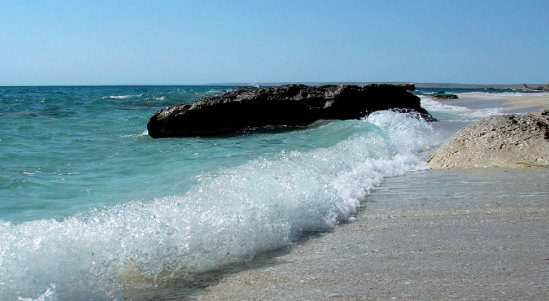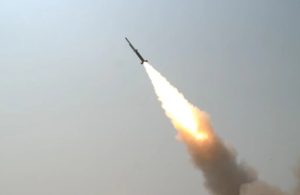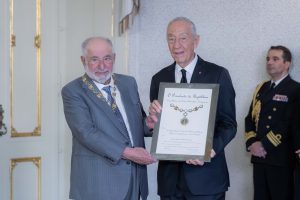AQTAU, Kazakhstan – The leaders of the five states bordering the Caspian Sea met in Kazakhstan Sunday to sign a landmark deal on the inland sea which boasts a wealth of oil, gas and sturgeon reserves.
Meeting in the Kazakh port city of Aqtau, the leaders of Azerbaijan, Iran, Kazakhstan, Russia, and Turkmenistan have signed a new convention on the legal status of the resource-rich sea — a matter disputed between the five neighbors for more than 20 years.
The leaders provided no details of the agreement in their speeches before the signing of the document.

Russian President Vladimir Putin said the settlement of the Caspian Sea’s legal status “creates conditions for bringing cooperation between the countries to a qualitatively new level of partnership, for the development of close cooperation on different trajectories.”
“It is crucial that the convention governs … maritime shipping and fishing, sets out military cooperation among [Caspian] nations and enshrines our states’ exclusive rights and responsibilities over the sea’s future,” Putin said. He added the landmark accord also limits military presence in the Caspian Sea to the five littoral countries.
His Iranian counterpart, Hassan Rohani, said that the delimitation of oil- and gas-rich Caspian seabed will require additional agreements between littoral states.
And Kazakh President Nursultan Nazarbaev said the parties agreed to set up a “special mechanism of regular five-party consultations under the auspices of the Foreign Ministries” to implement the provisions of the convention.
The summit was also attended by Azerbaijani President Ilham Aliyev and Gurbanguly Berdymukhammedov of Turkmenistan.
https://en.dailypakistan.com.pk/headline/russian-warships-traget-is-terrorists-in-syria-from-caspian-sea/
Debates on whether the Caspian is a sea or a lake have been ongoing since the Soviet Union fell apart in 1991, leaving five countries with shorelines on the inland sea instead of two – the Soviet Union and Iran.
If deemed a sea, the five countries would draw lines extending from their shores to the midway point with littoral neighbors, while classifying it as a lake would mean the resources would be divided equally among those five countries.
At stake are resources including trillions of dollars’ worth of hydrocarbons in the seabed, which holds about 50 billion barrels of oil and nearly 9 trillion cubic meters of natural gas in proven or probable reserves.














